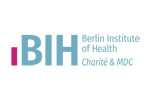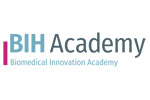Clinician Scientist Programs take center stage in training young doctors in Germany. The German Research Foundation (DFG) published its recommendations towards the integration of research training programs for clinician scientists (DFG, April 2015) and thereby pushed its role within the German university landscape. Despite the growing numbers of Clinician Scientist Programs, a common ground for training Clinician Scientists is needed in the form of adequate quality standards: Clinician Scientist Programs vary in length, amount of research time provided, application requirements, etc. Therefore, the DZHW and the BIH Biomedical Innovation Academy perform an evaluation study based on qualitative and quantitative methods in order to survey and improve the quality of training at the Charité BIH Clinician Scientist Program. The results of this study will contribute to the overall development and structure of Clinician Scientist Programs in Germany.
A critical evaluation of the BIH Charité (Junior) Clinician Scientist Program
Start of the project: 2019-Jun-01 - End of the project: 2021-Mar-31
Kritische Bestandsaufnahme des BIH Charité (Junior) Clinician Scientist Programms: Untersuchungen einer integrierten Forschungs- und Facharztweiterbildung in der Universitätsmedizin.
Hendriks, B., Schendzielorz, C., Heger, C., & Reinhart, M. (2021).Kritische Bestandsaufnahme des BIH Charité (Junior) Clinician Scientist Programms: Untersuchungen einer integrierten Forschungs- und Facharztweiterbildung in der Universitätsmedizin. Berlin: DZHW.
Kritische Bestandsaufnahme des BIH Charité (Junior) Clinician Scientist Programms: Untersuchungen einer integrierten Forschungs- und Facharztweiterbildung in der Universitätsmedizin. Ergebnisse der Programmevaluation 2019/20 INKLUSIVE ERHEBUNGSINSTRUMENTE.
Hendriks, B., Schendzielorz, C., Heger, C., & Reinhart, M. (2021).Kritische Bestandsaufnahme des BIH Charité (Junior) Clinician Scientist Programms: Untersuchungen einer integrierten Forschungs- und Facharztweiterbildung in der Universitätsmedizin. Ergebnisse der Programmevaluation 2019/20 INKLUSIVE ERHEBUNGSINSTRUMENTE. Berlin: DZHW.
A Review of Mark Dennis Robinson, The Market in Mind—How Financialization is Shaping Neuroscience, Translational Medicine and Innovation in Biotechnology.
Hendriks, B. (2021).A Review of Mark Dennis Robinson, The Market in Mind—How Financialization is Shaping Neuroscience, Translational Medicine and Innovation in Biotechnology[Rezension des Buchs The Market in Mind—How Financialization is Shaping Neuroscience, Translational Medicine and Innovation in Biotechnology. The MIT Press, Cambridge, MA, 2019, 309 pp., ISBN: 9780262536875, von M. Robinson]. Minerva, https://link.springer.com/article/10.1007%2Fs11024-021-09432-x, (Abgerufen am: 03.02.2021).
What are clinician scientists expected to do? The undefined space for professionalizable work in translational biomedicine.
Hendriks, B., Simons, A., & Reinhart, M. (2019).What are clinician scientists expected to do? The undefined space for professionalizable work in translational biomedicine. Minerva (57), 213-257, Wiesbaden: Springer. https://doi.org/10.1007/s11024-019-09367-4
Clinician scientists have gained institutional support in the era of translational research, as the key solution to closing the ‘translational gap’ between biomedical research and medical practice. However, clinician scientists remain an ‘endangered species’ in search of a secure niche, while new grants and training programs attempt to counteract their measurable decline in numbers over the past decades. Our study asks how an occupational space for clinician scientists is currently situated between the politics of translation, professional dynamics, and the specialization of academic disciplines. We interviewed clinician scientists, their adjacent professions—clinicians and biomedical researchers—, and contrast their views with expectations
From Innovation To Translation: How New Concepts Shape Health Care Practices.
Hendriks, B., Schendzielorz, C., & Reinhart, M. (2021, August/September).From Innovation To Translation: How New Concepts Shape Health Care Practices. Vortrag auf der Konferenz Sociological Knowledges for Alternative Futures, ESA 2021 conference , Barcelona, Spain.
Invisible practices in translational medicine: the case of clinician scientists.
Hendriks, B., Schendzielorz, C., & Reinhart, M. (2020, August).Invisible practices in translational medicine: the case of clinician scientists. Vortrag auf der EASST/4S 2020 Locating and Timing Matters: Significance and agency of STS in emerging worlds, 18.8.-21.08.2020, Prague, Czech Republic.
Translational Research and Translational Identities in: The Language of STI Policy in the 21st Century (Chair: Margaret A. Lemay).
Reinhart, M., Flink, T., Hendriks, B., & Heßelmann, F. (2019, September).Translational Research and Translational Identities in: The Language of STI Policy in the 21st Century (Chair: Margaret A. Lemay). Vortrag auf der 4S 2019: Innovations, Interruptions, Regenerations, 04.-07.09.2019, New Orleans, Vereinigte Staaten von Amerika.
Clinician Scientists als Gegenstand sozialwissenschaftlicher Forschung im Kontext von Translation.
Hendriks, B., Reinhart, M., & Simons, A. in Zusammenarbeit mit Dirnagl, U. , Riedel, N., Tölch, U., & Ohlraun, S. (2018, Januar).Clinician Scientists als Gegenstand sozialwissenschaftlicher Forschung im Kontext von Translation. Vortrag im Rahmen des Clinician Scientists Retreat am Berliner Institut für Gesundheitsforschung.
Researchers
Funded by


